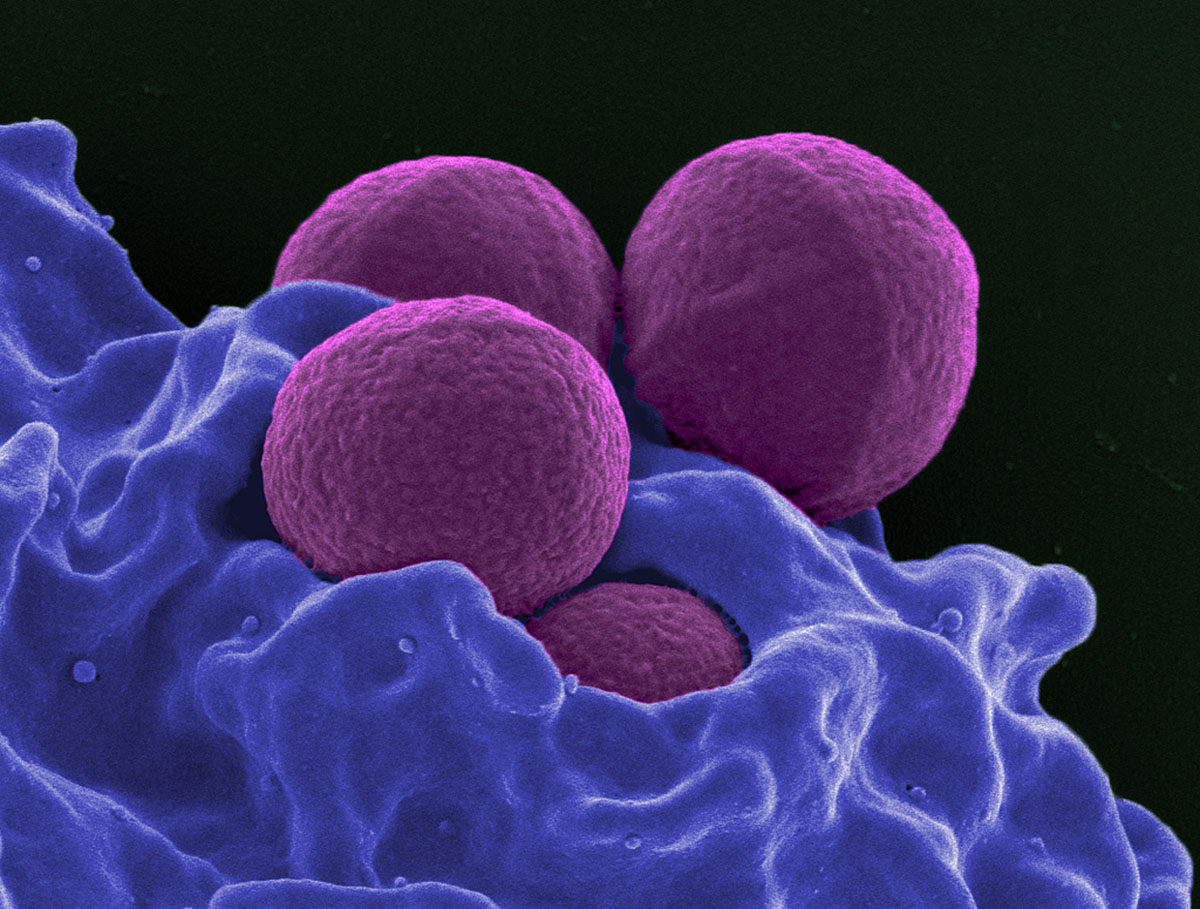Table of Contents
There are individual risk factors too. MRSA is more likely to affect you if you're a diabetic, if you're a woman who suffers frequent urinary tract infections, if you're an intravenous drug user or if your immune system is compromised by HIV or by a preexisting infection, or by treatment for cancer or post-transplant immunosuppressant drugs.

The infection rate amongst football players is 16 times the national average, while in prison ordinary staph infections lay the groundwork for MRSA infection - the most reliable guide to whether a prisoner will get MRSA is if he or she has had ordinary staph already.
So now we know what it is and where we're likely to get it. What can be done about it?
First of all, MRSA isn't necessarily more virulent than ordinary staph, apart from its drug resistance. That's important to remember.
The next thing is that basic hygiene is the best way to stop MRSA spreading. In hospitals it spreads on healthcare providers' hands and clothing, towels and curtains, flat surfaces and paper gowns. It's poor cleaning, handwashing and garbage disposal that's making an epidemic out of it, and the most successful large-scale attempt to eradicate MRSA has involved advising healthcare providers to wash their hands and making it easier to do it.
The best substances are chlorhexadine and Povidone iodine, both of which can be got from chemists. Chlorhexadine is available as a mouthwash, which is effective as an antiseptic for wounds too.
Unfortunately, you can't put chlorhexadine into the bones or lungs of people with deep, persistent MRSA infections. So what can you do?
Currently, doctors are looking at using vancomycin. It's the main treatment for MRSA and it's still the go-to treatment because it remains safe and effective. That's the verdict from a University of Nebraska study published this October in the Journal of the American Medical Association. Study leader Dr Andre Kalil, who's an infectious diseases expert, said, 'even though vancomycin is an older drug, it's still killing staph very effectively,' and there's no need for doctors to switch to using a newer drug.
See Also: Is Your Doctor Prescribing Antibiotics You Don't Need?
If doctors did want to switch to a newer drug, there are plenty available. Vancomycin faces competition from new discoveries like Oritavancin, which promises to be a 'single-shot' cure for the disease, as well as other skin infections. The risk of antibiotic resistance developing is going to be serious as long as there are reservoirs of MRSA in hospitals, prisons and nursing homes as well as in the general population, and the biggest - and oldest - treatment option is still the best: really good basic hygiene.
- Photo courtesy of RBRWR via Flickr: www.flickr.com/photos/rbrwr/117311111
- Photo courtesy NIAID via Flickr: www.flickr.com/photos/niaid/11854196633


Your thoughts on this